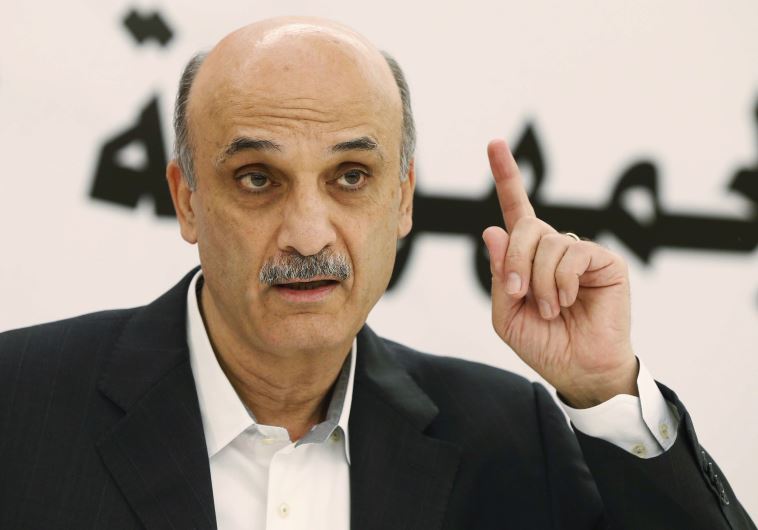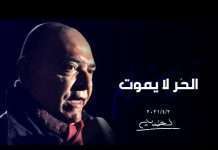Winds of change are blowing in Lebanon
Hadas Maman/Jerusalem Post/January 30/16
The latest development in Lebanon’s presidential race came as a shock even to those accustomed to the country’s bizarre political twists.
Samir Geagea, the leader of the Lebanese Forces (LF) Party, threw his support last week behind the presidential candidacy of his lifelong rival, the former general Michel Aoun, whose Free Patriotic Movement is Hezbollah’s main Christian ally in parliament.
This despite the facts that Geagea’s pro-Western political bloc backs the uprising against Assad and Geagea and his supporters had firmly rejected Aoun until now.
It is not yet certain if this alliance between Aoun and Geagea will ultimately lead to Aoun becoming president.
It is possible that the move could be an attempt to better position Geagea himself for the presidency.
Time will tell if this is more about giving Aoun and Geagea influence over the presidency – and giving Christians a greater say in Lebanese politics – than appointing Aoun as president.
What is certain is that if Aoun is elected, he will officially make Lebanon an Iranian satellite.
Since May 2014, when Michel Suleiman’s term ended, Lebanon has been in a state of political deadlock; a candidate could not be found in a system which requires a two-thirds majority in parliament.
In the absence of a president, the cabinet has taken over presidential decision-making, but coming to a unanimous decision is difficult with such opposing views within the cabinet.
This power vacuum has established a caretaker government that cannot agree on any course of action and does not have the power to reform the electoral system.
At the heart of this debacle lies Lebanon’s political system, which associates political representation with sectarian affiliation. While the Lebanese constitution guarantees equality between all citizens, an unwritten national pact forged between the country’s leaders in 1943 divided the key posts in the country among the three key sects.
The president was to be a Maronite Christian, the prime minister a Sunni Muslim and the speaker of the parliament a Shi’ite Muslim.
A peace deal forged in 1989 in the Saudi city of Taif, during the final stages of Lebanon’s 1975-1990 civil war, was supposed to be the beginning of the end of sectarian quotas. But in fact the Taif Agreement maintained the old arrangement with some adjustments, allowing for an equitable distribution of top-level civil service posts and of parliamentary seats between Christians and Muslims.
These were meant to be temporary clauses until a senate of religious leaders could be appointed, as a first move toward the abolishment of Lebanon’s political sectarianism.
This part of the Taif Agreement was never implemented, and a quarter of a century later the quota system remains in effect. Sectarian balance is considered at all levels of government.
Even government positions and economic gains from public contracts tend to be distributed on a sectarian basis.
The two leading presidential candidates, former warlords general Michel Aoun and Samir Geagea – both Christians with controversial backgrounds from Lebanon’s civil war – lead the two largest Christian political parties in Lebanon, the Free Patriotic Movement (FPM) and the Lebanese Forces (LF). The two leaders have been deeply divided and hold the balance of power in Lebanon.
Aoun’s FPM is allied to the Hezbollah- led March 8 camp, while Geagea belongs to the Sunni-dominated March 14 group led by Sunni politician Sa’ad Hariri, who is in turn backed by Saudi Arabia, has been highly critical of Syrian President Bashar Assad’s conduct during Syria’s civil war and views the Syrian government as responsible for the assassination of his father, Rafik, in central Beirut in 2005. The killing sent shockwaves through Lebanon and eventually led to the end of three decades of Syrian occupation.
Two months ago Lebanon’s political crisis took a dramatic turn when Hariri nominated Suleiman Franjieh for the presidency in an attempt to break the presidential deadlock and revive the work of parliament and the government. Franjieh is a key member of the March 8 alliance ,a former interior minister with family ties to Assad and his father Hafez dating back to the 1950s.
According to the reports, Franjieh’s nomination had the backing of regional and international actors including Saudi Arabia, Iran, the United States and France, who have long been at odds about who should rule Lebanon.
Geagea, who is sensitive to Franjieh due to a long-lasting feud dating back to the civil war (Franjieh’s father, mother and sister were assassinated in 1978 by Christian Phalangists commanded by Geagea) and because they are competing for the same Christian area in Northern Lebanon, did a U-turn and backed his own arch enemy, Aoun.
For the time being, it seems that the Aoun-Geagea consensus is inadequate to resolve the presidential issue, with both sides being incapable of persuading their allies of this agreement.
Moreover, the ongoing row between Riyadh and Tehran could further complicate the situation.
Beirut has long been a traditional battleground in the regional proxy war between Riyadh and Tehran, who invest billions of dollars to support their respective candidates. Although small, Lebanon is considered by both regional powers to be an important jewel in their crowns.
Aoun has supported Iran’s role in the region and his election would mark an extension of Tehran’s influence, just as the ongoing tussle for power and influence has seen Saudi Arabia sever diplomatic relations with the Islamic Republic.
This flare-up in tensions was precipitated by an attack on the Saudi embassy in Tehran, which in turn had followed the execution of a senior Saudi Shi’ite cleric Baqir Nimr, and led to an exchange of tirades in Lebanon between Saudi Arabia and Iran’s main allies in the country – Al Mustakbal and Hezbollah.
Sheikh Nabil Kaouk, the deputy head of Hezbollah’s executive council, stressed Sunday (January 24) that, “Lebanon will never be under Saudi tutelage and anyone who thinks otherwise is delusional.” He also said, “The Saudi regime is paying money to its tools in Lebanon with the aim of inciting against the resistance [Hezbollah], because it has exposed their crimes and managed to foil the major takfiri schemes in the region.”
This statement comes after Hezbollah leader Sheikh Hassan Nasrallah’s aggressive attack against Saudi Arabia and its allies. Nasrallah, who in the recent past had called for the “death of the house of Saud,” continued his attack by stating: “Is not it high time to say courageously and regardless of all scores that the principle and spirit of the takfiri thought which destroys, murders, commits massacres and threatens the whole world is produced by Al Saud?” In response, Ahmad Fatfat, an official in Lebanon’s mainly Sunni Future movement, called Hezbollah “an Iranian militia” that wanted to “take control of Lebanon.”
Saudi Arabia fears Iran will use some of the windfall from the lifting of international sanctions in the wake of its nuclear deal with the P5+1 nations to shore up its regional proxies, including Hezbollah. If Aoun is elected leader, it would likely damage the March 14 bloc’s status within Lebanon, and possibly be seen as another blow to Sunni standing in the region.
In the meantime, the ongoing presidential vacuum continues to impair Lebanon’s ability to address security and socio-economic challenges. The paralysis reached a peak during the summer, when the country was shaken by the largest protests in years over the government’s inability to find a solution to Lebanon’s ongoing trash problem. The demonstrations quickly developed into protests against the entire political establishment.
Additionally, the Syrian crisis continues to affect the political, security and humanitarian situations in Lebanon.
Almost five years after the eruption of the Syrian crisis, the country houses more than 1.5 million Syrian registered refugees, which represents close to a quarter of the total population of the country. This is putting an enormous burden on Lebanon’s ability to secure the country and maintain its stability.
The magnitude of the problem is not limited to the economy and service sector, and is becoming more dangerous to Lebanon’s security and stability – it has become a “ticking bomb.” At this critical moment, Lebanon needs responsible leadership that will address the challenges its facing, otherwise, Lebanon will be on the brink of collapse.
The author is a Middle East and Arab media researcher.

















